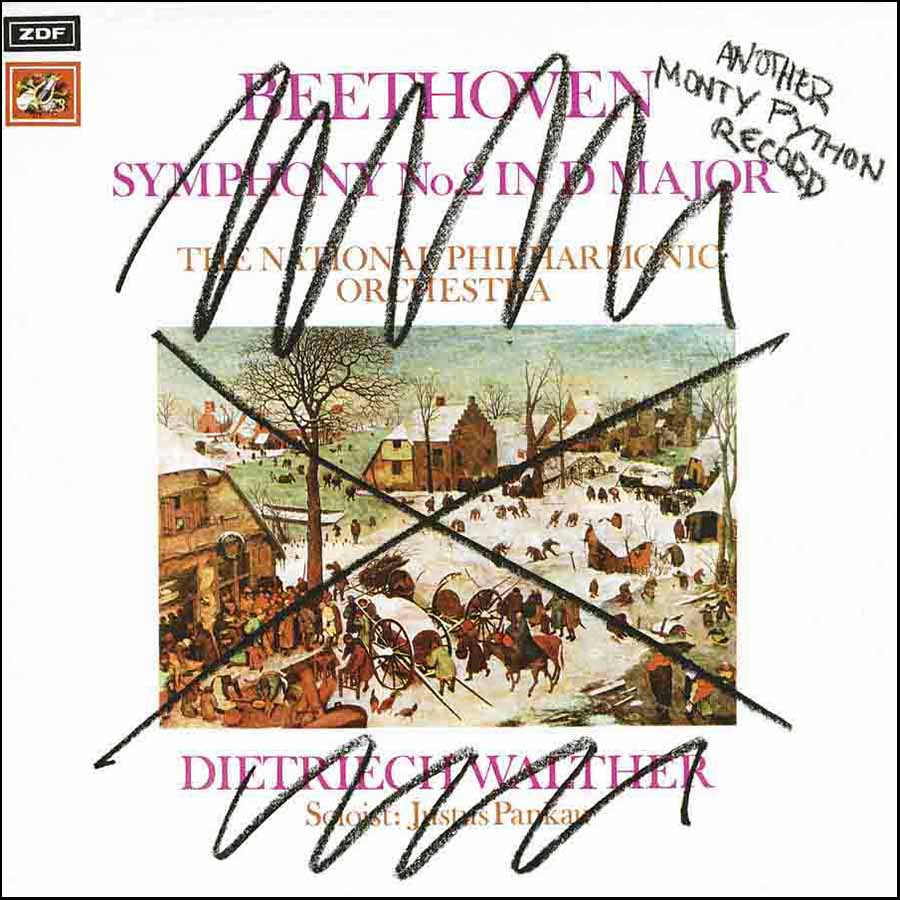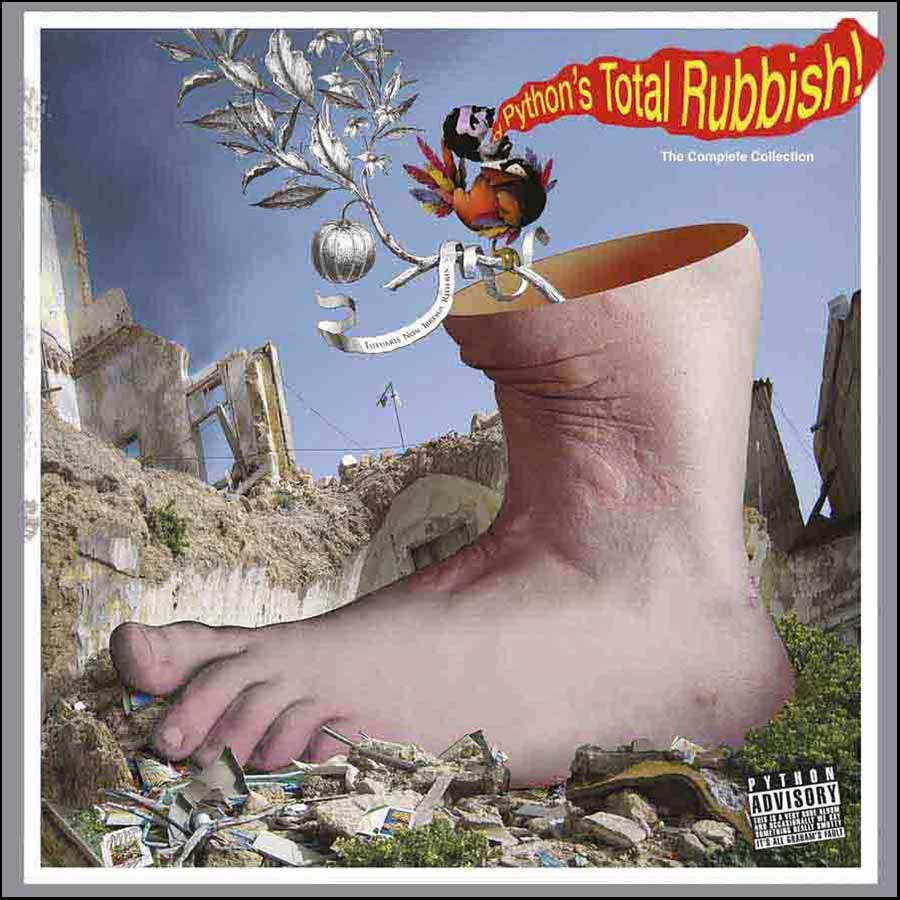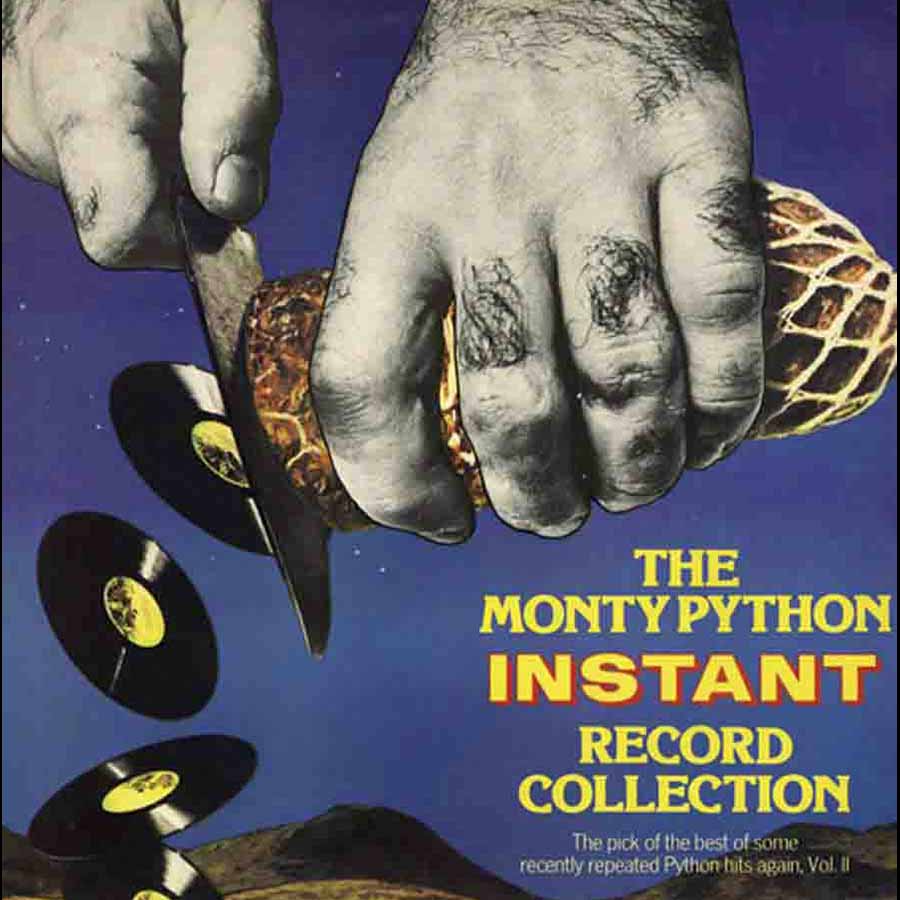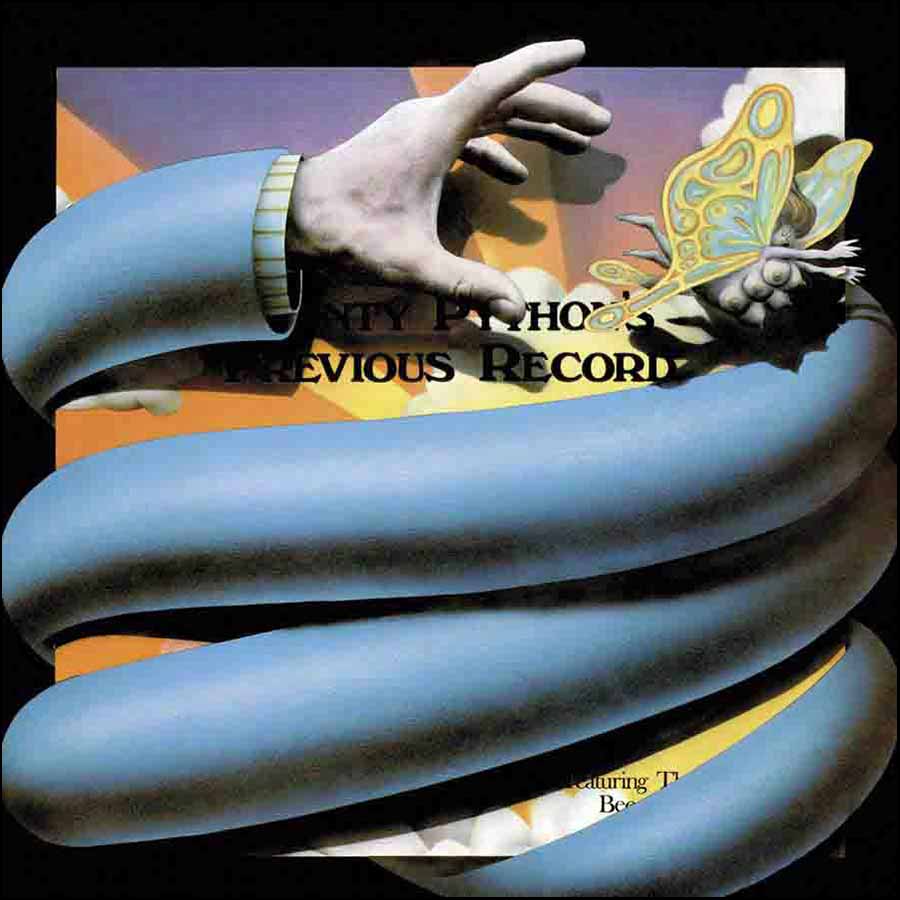- MUSIC -
-
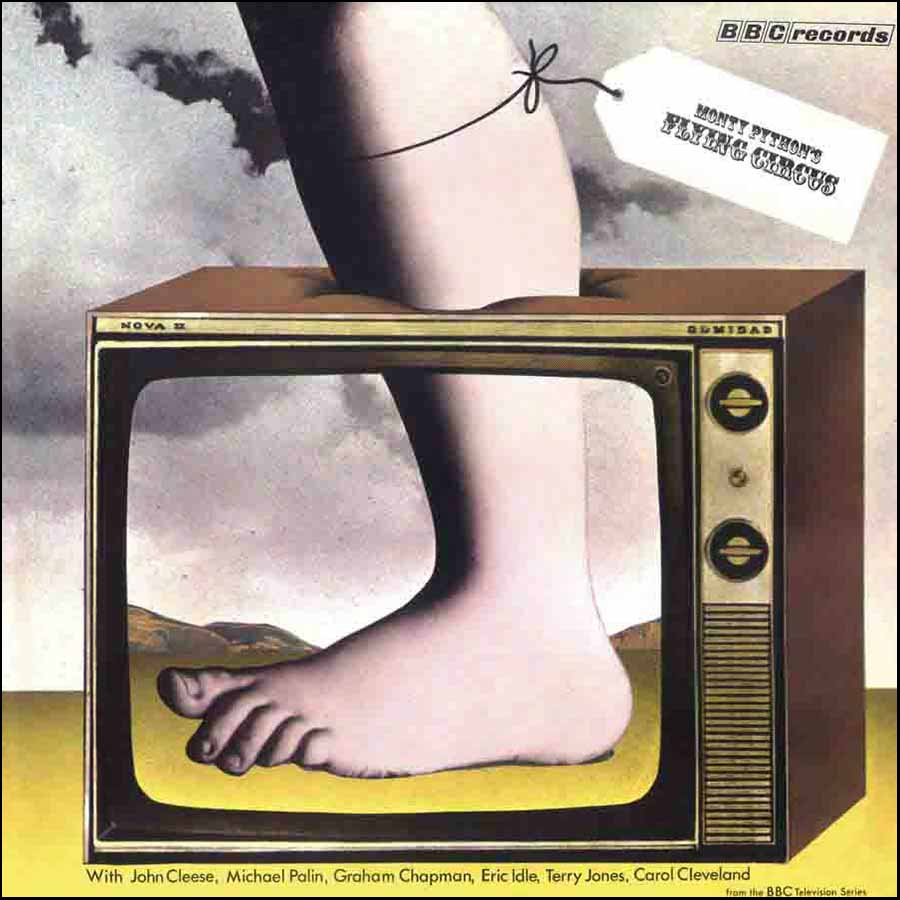
Monty Python's Flying Circus (1970)
The very first series of 'Monty Python's Flying Circus' had come to the end of its original run just four months before the BBC rushed this album into production. So early in the history of Python is it that on the record's original release Terry Gilliam wasn't even credited as a member of the team. Despite designing the iconic cover artwork and even cropping up as an extremely camp unwanted guest in the Visitors sketch, it was a five man outfit back then. The one woman, Carol Cleveland, is reassuringly on hand to be shocked, seductive or sedate as and when required.
The album was produced by the overseer of the television series Ian McNaughton and became something of a 'lost' Python album. Re-released as 'The Worst of Monty Python' as part of the Audio Visual International range in 1985, even the BBC seemed to forget exactly what it was. Although it would be dusted down for a release on compact disc, it was marketed and packaged as simply a collection of "the very best of the BBC TV series". It is that, undeniably, but far more than just a compilation of favourite sketches lifted from the television soundtracks, this was recorded especially for BBC Records. As Michael Palin remembers: "Someone at the BBC obviously thought there was a market in us getting together to record some of the old sketches. Actually, they wouldn't have been (+i)that(-i) old then. Everything is from the first series of 'Python'. We would have been working on the second series at that time. All of us were gathered together at the Camden Palace Theatre and recorded it in a day. It took us about three hours to get everything recorded and then the BBC engineers tidied up the tapes and released it".
The day in question was 2nd May 1970 and for this special, inaugural Monty Python album the BBC had invited a studio audience. They weren't the most animated of audiences and certainly took a little time to warm up. Indeed, the very first sketch only gets the occasional laugh. Flying Sheep, incidentally the very first sketch the team had performed for a television audience too, again has farmer Graham Chapman discussing his sheep problem with amazed passerby Terry Jones. Still, Graham's pay-off line is followed by complete silence. He does better in The Mouse Problem. The audience seem to have finally got the rhythm of the humour and fully appreciate his repeated: "I know I have!" It's just a pity that the BBC couldn’t spell his name right on the record cover. He was originally billed as Grahame Chapman.
The BBC also erred with the recording too. The Pythons had been reassured that the session would be recorded in stereo. In the event, it was recorded and released in mono. This made the scripted material where Graham demonstrates the stereo recording system completely redundant, but he performed it anyway. It was a very Python coup.
"Everything at the BBC was done on a dreadful shoestring,” maintains John Cleese. “I remember we were filming in the early days of Python and I had been hanging around all day. In the end all that was seen of me on screen was my right shoulder! I said to Ian: 'Look, can't we get a stand-in or an extra to do this sort of thing?' and Ian said: 'Oh no. An extra would cost thirty pounds a day. You only cost us ten!' That was the BBC."
It would be Ian McNaughton who would direct the team's first feature film at the end of 1970. Indeed, 'And Now For Something Completely Different' would revisit many of the sketches recorded for this album. The two projects are very much companion pieces and invaluable indicators of things to come. The first film basked in re-heated old sketches while tentatively playing with the conventions of cinema, something that the Pythons' subsequent films would really rejoice in. Similarly, while the later Python records would easily over-shadow their first, it is clear that the team are parading familiar material but in a gleeful way that is already twisting the conventions of the long playing record.
At its most obvious, Terry J. sets up material with a knowing: "Good morning, is this the Barbers Shop sketch?" On the same track John provides a running commentary on the visual action lost to the listener at home. More importantly, the team are already making the record a unique experience. The BBC may be throwing it together, the Pythons clearly are not. It is purposely written and performed not for the crowd at the Camden Palace theatre but for the people who will purchase it. John Cleese mutters, "End of side one" and, once the listener has turned the album over, Eric acknowledges John as the chap who interviewed Sir Edward Ross on the other side.
Later John begins to complain about his deceased Norwegian Blue to Graham's military officer who gruffly advises: "You want the pet shop on the next track!" The relentless joke that this is merely a record you are listening to and that the said record has restrictions and codes that need mocking is reinforced by Terry J. as a British Railways employee who explains: "it's not easy to pad these records out to 30 minutes you know...". The laughter that the Parrot sketch engenders is almost at fever pitch. Well, as fevered as this audience got.
While the Pythons are actively tackling the limitless fun of sound recording, the BBC engineers seem to be treating it more like a simple radio show. Indeed, just before the BBC finally sold the Camden Palace theatre in 1972 they recorded 'The Last Goon Show of All' there. This Python record utilises sound effects that are very reminiscent of Goon Shows of the past. In particular, the coughing cat in the Interesting People sketch has a decidedly Goonish feel to it. Harry Morris was the man in charge of them. His mindset was that comedy meant silly sounds, musical stings and speeded-up voices. It's funny but uninspired. Conventional but not Python.
Despite the limitations of BBC Records this is a tight and technically savvy first attempt to distil the aural insanity of Monty Python for the turntable. For John Cleese: "it's a perfectly adequate record of what we were doing at the BBC at that time.”
See Also
